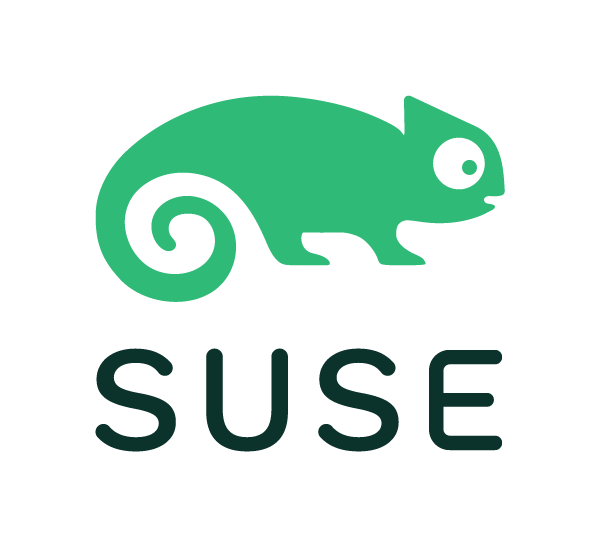SUSE®, the world’s largest independent open source company, today unveiled enhancements to two of its leading enterprise technology solutions that simplify, modernize and accelerate the business of customers around the world. SUSE Linux Enterprise 15 Service Pack 2 and the latest in infrastructure management from SUSE Manager 4.1 are now available.
“SUSE solutions, including SUSE Linux Enterprise, are designed for IT transformation,” said Thomas Di Giacomo, SUSE president of engineering and innovation. “Customers stake their businesses on their IT infrastructure and we stake our business on their success. With SUSE and using true open source software, they can simplify their existing environments and ease the transformation that will allow them to take advantage of modern computing as they accelerate innovation in their businesses.”
What’s New in SUSE Linux Enterprise 15 SP2
SUSE Linux Enterprise 15 SP2 helps customers simplify their IT environments by bridging traditional and software-defined infrastructures and breaking through silos of hybrid IT. It features:
Improved business continuity as it increases system uptime by up to 12 months with SUSE Linux Enterprise Live Patching, which is now also available for IBM Z and LinuxONE.
Cloud enhancements with updated cloud images that make it easier for customers to benefit from hyperscalers – Alibaba, AWS, Google, IBM, Microsoft Azure and Oracle.
Greater security for federal government and public sector customers as well as others running high-security environments with FIPS 140-2 certification-ready packages and support for a complete and secure offline installation for air-gapped deployments.
Michael Desens, vice president of offering management, IBM Z and LinuxONE, IBM, said, “Today’s announcement of SUSE Linux Enterprise 15 SP2 adds support for new capabilities of IBM z15 and LinuxONE III including IBM Secure Execution for Linux – a Trusted Execution Environment that is designed to run large numbers of workloads in full isolation at scale, with enterprise-grade features engineered to protect sensitive data from internal and external threats across the hybrid cloud environment. SUSE Linux Enterprise 15 SP2 also includes SUSE Linux Enterprise Live Patching for IBM Z and LinuxONE, which can help to maximize system uptime and availability for mission-critical systems.”
SUSE Linux Enterprise 15 SP2 also helps customers modernize their IT infrastructure by making legacy infrastructure more efficient and easing migration to cloud and multi-cloud. It includes:
Easier migration of SAP HANA and SAP S/4HANA services to cloud and hybrid implementations with automated installation and configuration of the complete software stack, optimized for performance and resilience. Integrators can add SAP S/4HANA migration sizing data to deployment scripts for automatic deployment in just a few clicks. SAP Basis Administrators can also proactively manage SAP systems with new monitoring and visualization of server, cluster and SAP applications data.
Improvements for on-premises deployments and hardware support with an up-to-2x compute scalability increase by enabling the latest hardware generation. SUSE Linux Enterprise supports the latest hardware, including Fujitsu A64FX, Intel and the upcoming next-generation AMD EPYC™ processor.
SUSE also collaborated with Microsoft to develop a solution to collect and graphically display both server and SAP-specific operational data to proactively identify potential problems. John Gossman, Microsoft Distinguished Engineer at Microsoft Corp., said, “SUSE and Microsoft have a long-standing commitment to ensuring smooth and reliable implementations of SAP systems. Microsoft Azure has standardized on SUSE’s Pacemaker Monitoring Exporter and is pleased to see this capability supported in SUSE Linux Enterprise Server for SAP Applications 15 SP2.”
In addition, SUSE Linux Enterprise 15 SP2 helps customers accelerate innovation by making it easy to adopt open source and run workloads anywhere. It features:
Greater operational efficiency and anytime/anywhere access to data through workflow automation and expanded hypervisor support from NVIDIA, putting more tools into the hands of data scientists and IT for managing artificial intelligence (AI) and edge workloads. Support for NVIDIA Tegra X1 and Tegra X2 provide new options for data scientists, while support for the newest Raspberry Pi 4 device enables reduced energy and heat dissipation while improving the installation process.
Faster migration from the openSUSE Leap community distribution to supported SUSE Linux Enterprise with SP2 binaries made available on openSUSE Leap.
Enabling of DevOps teams with support for automation, project builds and message-oriented middleware, combined with management and monitoring features such as RabbitMQ, Prometheus and Maven.
What’s New in SUSE Manager 4.1 and SUSE Manager for Retail 4.1
SUSE Manager 4.1 is a best-in-class open source infrastructure management and automation solution that lowers costs, identifies risk, enhances availability and reduces complexity in edge, cloud and data center environments. During times of uncertainty and IT staff disruption, issues with home-grown tools, disparate management products, remote management issues, lack of automation, and inconsistent monitoring and health checks are magnified. SUSE Manager addresses all these issues and keeps servers, VMs, containers and clusters secure, healthy, compliant and low maintenance whether in private, public or hybrid cloud.
New features – including expanded operating system support, cluster integration and management, and enhanced usability, virtual machine management and monitoring capabilities – reduce costs and streamline management. SUSE Manager is also able to scale to tens of thousands of client devices.
SUSE Manager for Retail 4.1 is best-in-class open source infrastructure management, optimized and tailored specifically for the retail industry. Enhancements improve operational efficiency with new capabilities supporting small store operations, enhanced offline capabilities and image management over Wi-Fi, and enhanced virtual machine management and monitoring capabilities. It can scale retail environments to tens of thousands of end-point devices and efficiently modernize point-of-service environments.
3 mins read
SUSE Unveils Major Enhancements to Its Enterprise Platform, Helping Customers to Realize Measurable Business Value






